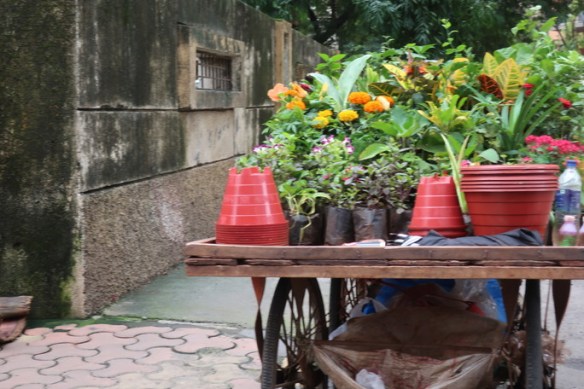Pick a place on the globe. Any place. It will be facing some sort of unusual weather. That unusual weather is likely to become the new normal. Higher heat, less rain, too much rain – it doesn’t matter, conditions will change and so must our lifestyles.
I just spent a glorious month in Provence, France. This is perhaps one of my most loved places on earth. It is where I feel most at home as though my spirit has always belonged here. I love everything about Provence but most especially the craggy, rugged landscape. Blessed with sunshine almost 300 days of the year, it is dry and beautiful. The pace of life is slow, the wine is light, food delicious and the people are unpretentious. Yet, beneath that display of the good life, there is the threat of fire. Wildfires have always been known to occur but over the years they’ve become more frequent and wider spread. So too have heat waves. Just as we’re seeing in North America.
Most homes in this region do not have air-conditioning. There hasn’t really been much need of it – the well built stone houses keep the interiors comfortably cool. Ceiling fans or freestanding ones have been sufficient. Not any more.
To keep energy consumption within capacity, when one runs the laundry or dish-washing machines matters. We are encouraged to use the machines late afternoon or very early in the morning. Wood for outdoor grilling is a no-no. Gas grills are encouraged.
Gardening as we know it is a super luxury. To grow vegetables for food is understandable but for beauty and fun? That’s a privilege only a few can afford. Water is precious. Unless one is blessed with ones own natural water source, the cost can be prohibitive. Of course, it stands to reason that making a garden with the region’s hardy natives is best. Lavender, rosemary, olives, succulents, Spanish broom, chicory and others do very well and if I were to make a garden here, those are the plants I’d use. It might be a cliché but I believe if one thinks outside the design box, there are numerous ways to design gardens with easily found, native plants. Anywhere in the world. This is reality.
And then, we come to the Mumbai monsoon season – I’m here for a couple of weeks. Not the most ideal time to visit but since I visit my father a couple of times a year, my schedule demands that I must face the rains annually. It’s warm and muggy. Almost swampy. The fierce torrents can routinely cause floods and damage to vegetation, roads and structures. The high humidity leaves a film of moisture on everything. Air conditioning is a luxury for most folk. So the humidity with all the implications and consequences is simply accepted.
But the monsoons are critical for farmers. The timing and amount of rain is extremely important. Too early or too late, too much or too little will all mean failed crops. Which would result in a global food shortage. Nothing works in isolation.
Climate change is not a local problem and cannot be solved region by region. One country cannot ‘solve’ it by itself. It demands the world coming together. Cooperation, compassion and commitment from every single country is imperative. Each citizen of the world must also do their part. We are in this together and together, we can do something positive to save the earth and save ourselves.
The frequency and ferocity of fires and floods are warning signals we can no longer ignore.
Note: Just so it we don’t feel depressed about it all, here are images of sunflowers in Provence to remind us of what we’re trying to save. And then, lets get cracking on fighting the good fight.










(c) 2023 Shobha Vanchiswar
[do_widget “Blog Subscriptions (Jetpack)”]























